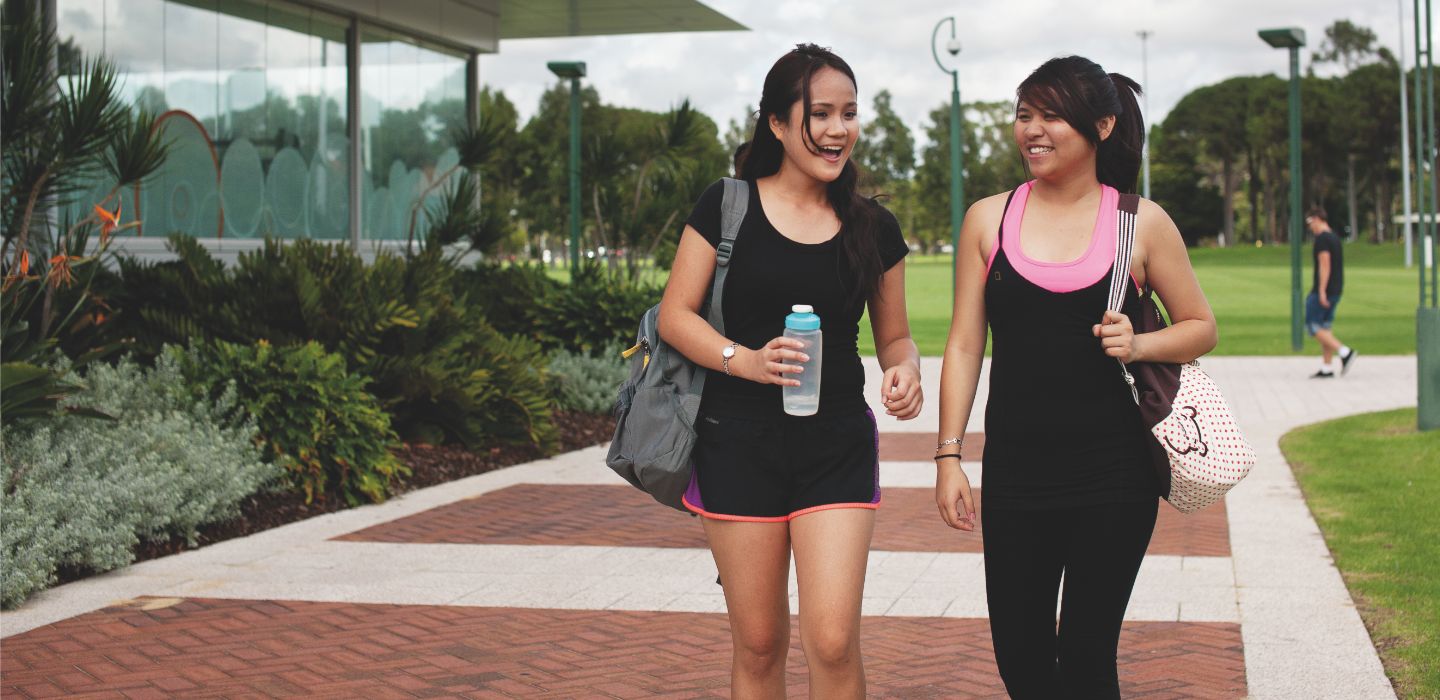There are many different types of support offered at Curtin College. Learn more about them so you can get help whenever you need it.
- Home
- About
- Courses
- Future Students
- Current Students
- How to Apply

There are many different types of support offered at Curtin College. Learn more about them so you can get help whenever you need it.
Keeping in touch with what brings us joy is vital to our wellbeing. Socialising, exercising, eating well and staying connected with friends and family are all factors that contribute to a worthwhile and fulfilling life.
Too often, it is these activities that are put to the side when we get very busy and feel like we may have conflicting priorities. Making time to take care of yourself will enable you to manage the demands of study and life.
It helps you maintain a healthy weight, improve immunity, reduce the risk of disease, and keep energy levels up all day.
Plan meals and snacks around colourful vegetables, fruits and wholegrains. Add protein and iron rich foods like lean meat, fish, poultry, eggs, nuts, and seeds. Some dairy can also contribute to your protein intake. Focus on heart healthy fats like avocado, nuts, seeds and olive oil.
As a general rule, everything is ok ‘in moderation’. However, too much sugar, caffeine, saturated fat or salt can have a negative impact on your health, sleep and energy levels. Limit foods with low nutritional value, such as chocolate, lollies, potato chips and energy drinks.
Resources:
As a student, it’s inevitable that you’ll spend large parts of your day sitting down – either in lectures or at a computer doing assignments – and that can have a negative impact on how your body feels.
Exercise regularly (in whatever way works for you – a team sport, walking, running, yoga or dancing) for great benefits to both your physical and mental health.
can provide us with an enormous sense of well-being.
It will help you boost your energy throughout the day, sleep better at night, have sharper memories, and feel more relaxed and positive. It can also help you better cope with challenges and stress.
A healthy body also means safe sex and healthy relationships. Sexual health involves every aspect of sexual relationships, pregnancy and sexually transmitted infections (STIs). If you need any sexual health support or simply have questions, visit our Medical Centre on campus.
Resources:
As a student, you’ll need to adjust to balancing study, work, financial, family and social commitments, all while getting used to a new environment.
Take regular breaks from study sessions, stay physically active, eat well and stay hydrated. Ask our Support team for help finding study methods that work best for you. You can also manage stress by managing your time well – be prepared and organised, attend all your classes, and start assignments early so they don’t become a source of anxiety.
Find more practical stress management tips on this page.
Practicing daily meditation and mindfulness exercises can also be a valuable tool, with many useful apps you can access from any device.
Learn more about meditation benefits and resources.
Resources:
Getting enough good quality sleep is vital to feeling and performing your best.
Some tips include: